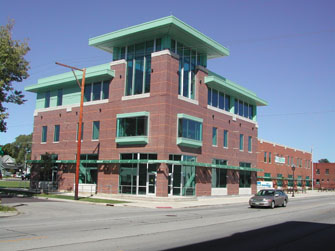Illinois Attorney General Lisa Madigan released a letter informing public bodies that it is law in Illinois that certified payrolls must be retained for three years.
Link to PDF below.

Welcome to the Illinois Prevailing Wage Council. We are a voluntary member organization dedicated to preserving and strengthening the laws that protect the men and women who work in the building and construction trades industry. It is our goal to ensure that all workers on public works construction projects are paid the wages and benefits that they deserve and that a level playing field is maintained for all contractors who build and service our infrastructure needs throughout Illinois. Illinois has strong prevailing wage laws due in large part to Labor's efforts past and present along with a dedicated Department of Labor that looks out for workers to ensure their rights are protected. We will continue to work each and every day to help provide these protections to all working people and contractors who share in our mission by abiding by all provisions of the Illinois Prevailing Wage Act.
Mike Macellaio, President

These are the most recent news regarding prevailing wage in the State of Illinois. Visit often to stay informed.

It is the policy of the State of Illinois that a wage of no less than the general prevailing hourly rate as paid for work of a similar character in the locality in which the work is performed, shall be paid to all laborers, workers and mechanics employed by or on behalf of any and all public bodies engaged in public works.

"The hard working men and women of Illinois are critical to reviving of our economic engine. That is why it is more important than ever to ensure that prevailing wage laws are enforced so working families can reinvest in our economy and help local businesses thrive." -- Illinois Comptroller Dan Hynes, January 2009
"I am reaching out to all public bodies in the State to make sure that you are aware of the requirements of the Illinois Prevailing Wage Act ("Act"), 820 ILCS 130/0.01, et seq. As you know, this is an important law that impacts all public bodies in Illinois. Ensuring compliance with the Act is one of my top priorities." -- Illinois Attorney General Lisa Madigan's letter to all public bodies throughout the State, January 2009 .
Welcome to the Illinois Prevailing Wage Council. We are a voluntary member organization dedicated to preserving and strengthening the laws that protect the men and women who work in the building and construction trades industry. It is our goal to ensure that all workers on public works construction projects are paid the wages and benefits that they deserve and that a level playing field is maintained for all contractors who build and service our infrastructure needs throughout Illinois. Illinois has strong prevailing wage laws due in large part to Labor's efforts past and present along with a dedicated Department of Labor that looks out for workers to ensure they're rights are protected. We will continue to work each and every day to help provide these protections to all working people and contractors who share in our mission by abiding by all provisions of the Illinois Prevailing Wage Act.
Mike Macellaio
President
Illinois Attorney General Lisa Madigan released a letter informing public bodies that it is law in Illinois that certified payrolls must be retained for three years.
Link to PDF below.
“The hard working men and women of Illinois are critical to reviving of our economic engine. That is why it is more important than ever to ensure that prevailing wage laws are enforced so working families can reinvest in our economy and help local businesses thrive.” — Illinois Comptroller Dan Hynes, January 2009
“I am reaching out to all public bodies in the State to make sure that you are aware of the requirements of the Illinois Prevailing Wage Act (“Act”), 820 ILCS 130/0.01, et seq. As you know, this is an important law that impacts all public bodies in Illinois. Ensuring compliance with the Act is one of my top priorities.” — Illinois Attorney General Lisa Madigan’s letter to all public bodies throughout the State, January 2009 .